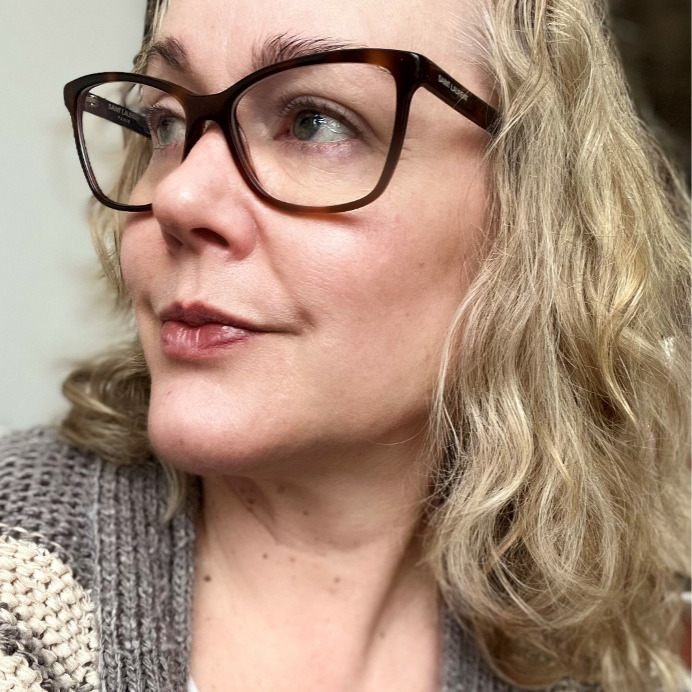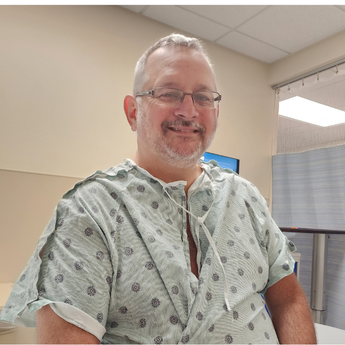By Adriana Ermter
 I’ve been watching Harry & Meghan, the documentary series on Netflix. I’m not a royal’s buff or even a fan, well, except for Princess Diana (I thought she was great). No, I started watching the series for boredom’s sake, because I needed a new show. I figured that because I like docu-series and because I couldn’t watch what I really wanted to—the Kardashian’s new reality show because I don’t have Disney+—this was it. So, I clicked play and about five minutes into Episode 1, I was hooked.
I’ve been watching Harry & Meghan, the documentary series on Netflix. I’m not a royal’s buff or even a fan, well, except for Princess Diana (I thought she was great). No, I started watching the series for boredom’s sake, because I needed a new show. I figured that because I like docu-series and because I couldn’t watch what I really wanted to—the Kardashian’s new reality show because I don’t have Disney+—this was it. So, I clicked play and about five minutes into Episode 1, I was hooked.
Hooked with the show’s realness, Harry and Meghan’s transparency and their obvious devotion to each other. I believed what Harry and Meghan were saying. I connected with their emotions. Particularly when British journalist Tom Bradby asked Meghan—who was under intense scrutiny by the royal family, the media, and the public, often through a very racialized lens—if she was okay. The then newlywed and new mom answered: “Not many people have asked if I’m okay.” Her tone, the calmness of her voice, the heaviness of the words, her everything, felt like an arrow through my heart. I could relate.
Clearly, Meghan and I have completely different life experiences and circumstances, but I can relate to her words. Throughout my entire breast cancer experience not many people asked me if I was okay.
When I was too confused to be okay
Yes, my oncology team did their perfunctory check-ins at every appointment, which was at times daily, with questions, tests, and scribbled notes. Still, I never felt like I received the human connection that I wanted. Breast cancer, rather breast cancer patients, are too commonplace and there are far too many of us for the few doctors who are specialized in the field to give us more than a clinical once over. I get it. I really do. It doesn’t mean I like it though.
Why can’t breast cancer diagnosis and care be more humane and less sausage-factory-like in their doctor-patient approach? From day one, when I found the lump in my right armpit and had my initial appointment I felt ignored. Sure, I was given my first mammogram on both of my breasts. But my lump was in my armpit. It was disregarded, thought to be a calcification and I was sent home to wait and see if anything changed. For six months. I didn’t wait quietly mind you. I don’t do that very well, except maybe sleep and even then, I’ve been told I snore, so there’s that. With the support of my GP, I contacted the breast clinic every single month, requesting to be seen again until I was. The lump was diagnosed as breast cancer. And no doctor asked if I was okay.
As a breast cancer patient, perhaps it’s common to not feel seen. I rarely felt seen. Rushed? Yes, I definitely felt that. Did I feel like a number instead of a person with a name? For sure. In the dark without answers? A lot. Branded difficult because of the three million questions I always seemed to ask? Most likely. Gaslit by my first oncologist who misinterpreted my Oncotype DX testing report? Sadly.
When I was post-surgery and presumed to be okay
To be fair, post-surgery, once I transferred everything over to my new oncology team at the Princess Margaret Hospital, I began to receive better patient care. That said, I was still just another woman with Stage 1 breast cancer. Problematic enough to need to treat immediately, but not scary enough to worry about imminent death. Logically it makes sense. More support and attention should go to the women who need it the most. Still, it would have been nice to be asked if I was okay.
After my “week off,” as my former boss liked to call my time spent in hospital and recuperating from surgery as though I’d been on vacation, I returned to the office. My former employer did not offer short-term disability, so it was business as usual. I don’t think it occurred to my boss to ask how I was doing because she never did. Not once. Ironic, considering she sat directly behind me and stared at the back of my head, which during the months of daily treatment, frequently bobbed up and down in attempt to not fall asleep.
Family and close friends were much more supportive, for which I am very grateful. And when they did ask, I always answered that I was fine. Truth was though, I was single and alone (with the exception of my beloved cat Trixie), and my physical and mental health was not okay. And the one person who should have been checking in on me diligently, was not.
That person is me.
When I was more focused on pushing forward than asking if I was okay
Yes, I am a very strong person. I can advocate for my own health. I am independent. I can support myself financially and I can take care of myself by myself in pretty much every way you can think of, except making IKEA furniture and killing spiders. I am also naturally very curious and never afraid to ask questions.
So why did I not ask myself if I was okay?
Because I was in survival mode.
Growing up as a child and then later, as a woman, I believed/believe that I have to buck up and persevere no matter what. It’s dumb, trust me, I know that, but it’s true. My life’s M.O. has been to go, go, go, until something breaks. Also dumb and also true. So obviously I broke.
My breast cancer breaking point came six months after my surgery. I’d just wrapped up months of daily treatment and I was done. Like, done-done and powering through wasn’t working. My body rebelled and my mind followed. I felt like I couldn’t see straight, let alone think, so I booked an appointment with my doctor. Not the members of my oncology team, but my GP, who has seen me through my single days, my marriage, my divorce and was the first person I went to after I found the lump in my armpit.
Sitting in her office that day, I could barely string a sentence together. My mind was fried. I had no short-term memory. I wasn’t eating well. I was too tired to cook. I barely slept. My body ached and my daily chemo-infused dose of Tamoxifen left me feeling hot, sweaty, and shattered. My doctor took one look at me and asked, “Are you okay?” I wasn’t and I told her. Then, we made a plan to put the pieces of my life and my physical and emotional health back together again.
It took time, literally, but with her support via a doctor’s letter I was able to tell my employer that I had to work part-time, which I did for six months until I had enough energy to resign, which I also did about three months later. Throughout the six months of part-time work, I slept and re-evaluated what I wanted. My body began to heal faster than my mind, and I started asking myself if I was okay. I wasn’t for a long time, yet by simply checking in with myself, it also became easier to accept whatever my answer was in that moment. I continue to do these check-ins and there are still lots of days when I’m not 100 per cent okay. But I can accept that now. It’s more honest and way easier than constantly pushing myself. It’s my new normal. Surviving cancer, physically and emotionally, has been unlike dealing with any other life challenge, including my divorce. It has changed my outlook on my life, so I guess it only makes sense that my definition of the word okay kind of goes hand in hand with that. And I’m mostly okay with that.
Adriana Ermter is a multi award-winning writer and editor. Her work can be read in Figure Skater Fitness, Living Luxe and IN Magazine, as well as online at 29Secrets.com, RethinkBreastCancer.ca, Popsugar.com and AmongMen.com. The former Beauty Director for FASHION and Editor-in-Chief for Salon and Childview magazines lives in Toronto with her two very spoiled rescue cats, Murphy and Olive. You can follow Adriana on Instagram @AdrianaErmter






